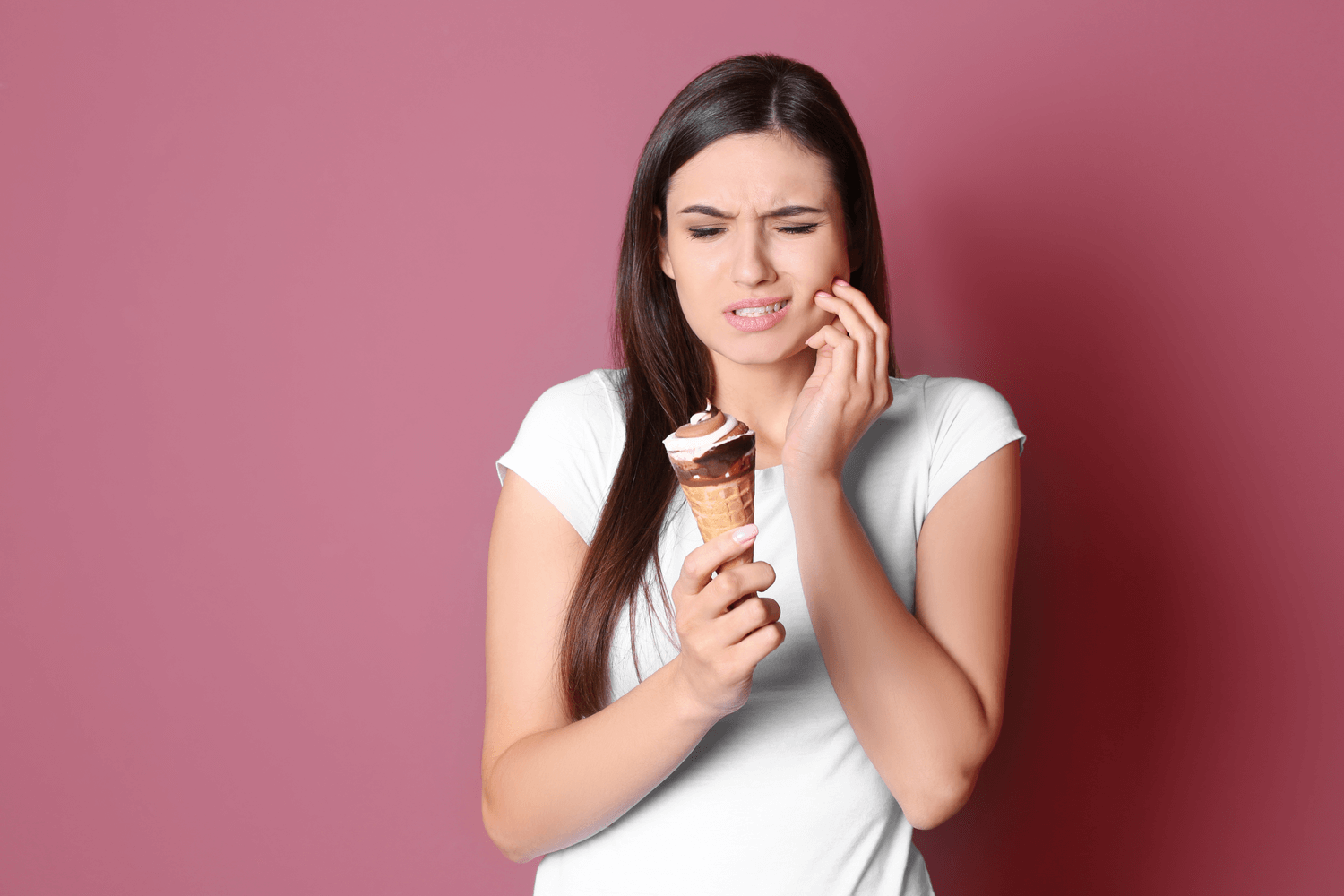5 Best Ways To Reduce Tooth Sensitivity
- Home
- 5 Best Ways To Reduce Tooth Sensitivity

A SIP OF COFFEE, A SPOONFUL OF ICE CREAM… you never thought that these simple pleasures could cause you so much pain!
But when you have sensitive teeth, your favorite foods and beverages can turn against you. Even sour foods and cold weather can drive you crazy!
Sensitive teeth are a common problem. Here are four great tips for easing the discomfort:
Of course, not brushing your teeth frequently is bad. However, sometimes the problem is that you’re actually TOO enthusiastic with your routine care.
If you’re brushing too much or too hard, it can contribute to receding gums. When gums recede, sensitive areas of your teeth are exposed. Always brush with a soft-bristled toothbrush. Brush gently in a circular motion without sawing it back-and-forth.One major culprit in an over-acidic diet is soft drinks—but sports/energy drinks, fruit juices, and sour candies can also contribute. Acid erodes your tooth enamel.
Limit these foods and drinks, and try to brush about 20 minutes after eating them (not earlier, or the brushing may hurt your enamel further).
Even if your teeth aren’t yet feeling sensitive, it’s a good idea to be cautious about consuming certain foods and drinks, as enamel loss is irreversible.Several brands of toothpaste on the market are designed to help people with sensitive teeth. Some pastes contain an active ingredient called potassium nitrate, which helps to block the tiny tubules in the dentin. They don’t work for everybody, but experts agree it’s usually the best place to start.
If you are using whitening toothpaste, you should check the usage instructions carefully. Whitening toothpastes can be more abrasive which can contribute to sensitivity.
If you’re grinding your teeth when you’re tense, you could be wearing away enamel and giving yourself a sensitivity problem. You may not even realize you’re grinding: Often people only do it while they’re sleeping, but unexplained jaw pain or headaches could be a clue. If you do grind your teeth, try a mouth guard at night, or change your sleeping position. If you notice yourself clenching during the day, remind yourself to relax your jaw with your teeth slightly apart.If you’re experiencing continued sensitivity, we should take a look. Receding gums can be a sign of gum disease. Sensitivity could also indicate a cavity, or be a warning that you’re grinding your teeth at night. Sometimes, it is also a sign of more serious issues such as a crack. To be sure it’s not a serious problem it may be necessary for us to take a look.